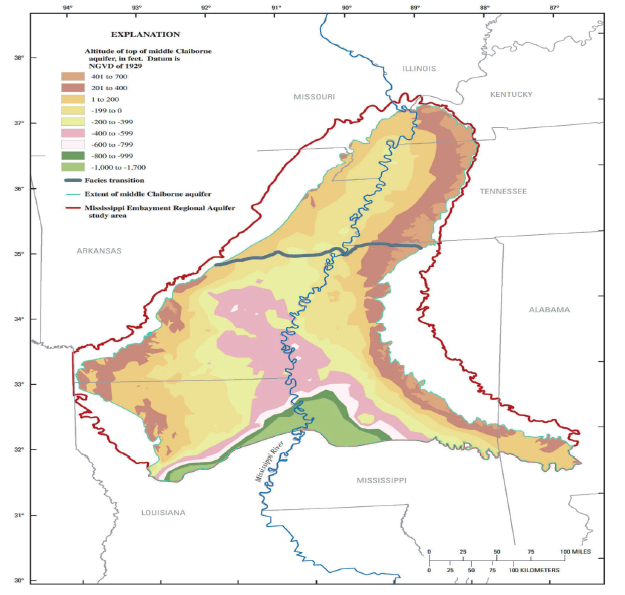Tennessee won a 16-year legal battle over water rights in the U.S. Supreme Court Monday.
Lawyers for the state of Mississippi have argued for more than a decade that Tennessee is stealing its water from the Middle Claiborne Aquifer, an expansion of underground water that flows beneath eight states. Oral arguments in the case went before the Supreme Court in early October. Mississippi sought $615 million in damages.
Justices were unanimous in their verdict issued Monday morning. “Mississippi’s complaint is dismissed without leave to amend,” reads the opinion, which means officials there cannot change their argument and bring the issue back to court. Should lawyers bring the case back to the court, they’ll have to file a new case.
In its latest argument, Mississippi lawyers told justices that water pumping in Tennessee sucks up water from Mississippi under the state line. Mississippi claimed an absolute ownership right to all groundwater beneath its surface — even after that water has crossed its borders. Lawyers claimed Tennessee’s wells violated Mississippi’s sovereign ownership rights to the water.
Justices agreed that pumping in Tennessee “clearly” has effects on water levels in Mississippi. Memphis Light, Gas & Water pumps about 120 million gallons from the aquifer each day from more than 160 wells in and around Memphis, according to the court.
“Tennessee’s pumping has contributed to a cone of depression that extends miles into northern Mississippi, and Mississippi itself contends that this cone of depression has reduced groundwater storage and pressure in northern Mississippi,” reads the opinion.
However, instances like these are a “hallmark,” justices said, of similar cases remedied by equitable apportionment, meaning the states have to share the water equally. Though, the Mississippi case is the first time equitable apportionment laws would be applied to aquifers.
But Justice John Roberts, writing for the court, said the rule should not be different for aquifers and when water is shared between two states, “each one has an interest which should be respected by the other.”
“Mississippi suggests the Middle Claiborne Aquifer is distinguishable from interstate rivers and streams because its natural flow is ‘extremely slow,’” reads the opinion by Chief Justice John Roberts, writing for the court. “But we have long applied equitable apportionment even to streams that run dry from time to time.
“And although the transboundary flow here may be a mere ‘one or two inches per day,’ that amounts to over 35 million gallons of water per day, and over 10,000,000,000 gallons per year. So, the speed of the flow, at least in the context of this case, does not place the aquifer beyond equitable apportionment.”
If Mississippi returned the case to the court, it would be to ask for terms of equitable apportionment and “must prove by clear and convincing evidence some real and substantial injury for damage.”
